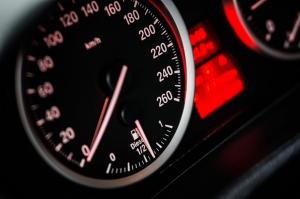 Everyone who has ever faced the decision to buy a car had a dilemma of choosing between the new one and the car which has been already used. The second option is more attractive in terms of the price, first of all. Such cars can be in operation just for several years and has no significant drawbacks, though it is still a gamble.
Everyone who has ever faced the decision to buy a car had a dilemma of choosing between the new one and the car which has been already used. The second option is more attractive in terms of the price, first of all. Such cars can be in operation just for several years and has no significant drawbacks, though it is still a gamble.
So, how to guess whether a ‘car in use’ was significantly damaged, or to find out other details about its operation? In the US, such type of services as VHR have become rather widespread, since they are very helpful. Taking into consideration the FAXVIN (which is one of the biggest services in the world, based in North America), you can find out plenty of facts about your car, in particular, the full damage and repair history.
What Is The VHR?
Vehicle history reports are extremely important if you are to conduct the ‘car in use’ purchase. Behind it, numerous curious facts about the vehicle can be hidden, though they can be omitted in the car description by the dealer. Due to the VHR, you can find out about accident cases, whether the vehicle was registered by an insurance company as a damage or a total loss (for which a declared compensation was paid under the accident/catastrophic event or other damage).
How Does It Work?
When a used car attracted you attention, you must find some free time to make your own research. The first thing that you have to reveal is its VIN (vehicle identification number). It is not a complicated task, and you won’t spend much time on it; the most obvious way to do that is to ask the actual previous owner or the dealer to provide it. The VHR is also connected to the VIN number (it can also be referred to as VIN lookup, so it is the same thing).
A counterfeit odometer, which shows you a desirably small amount, though the real number is much more larger, can be an example reason why you don’t want to purchase this car. Or an otherwise perfect car was used for crime, unlawfully taken from the owner, and obviously you won’t buy a car that was stolen.

Companies gathering and selling information about VHR can be a governmental or private agencies. They usually offer the following information:
- Tue odometer value
- True salvage reasons
- Accidents and serious damages
- Maintenance issues
- and other facts.
Use NMVTIS
NMVTIS stands for the National Motor Vehicle Title Information System, in the United States. This system considers information about the vehicle history. Although it does not provide an explicitly detailed report, it is still a reliable source, because other official agencies like insurance companies may require the federal report from NMVTIS to proceed the claim.
Overall, if you plan to buy a used car, conduct your own research to make sure you invest your money in a vehicle that is worth it.










